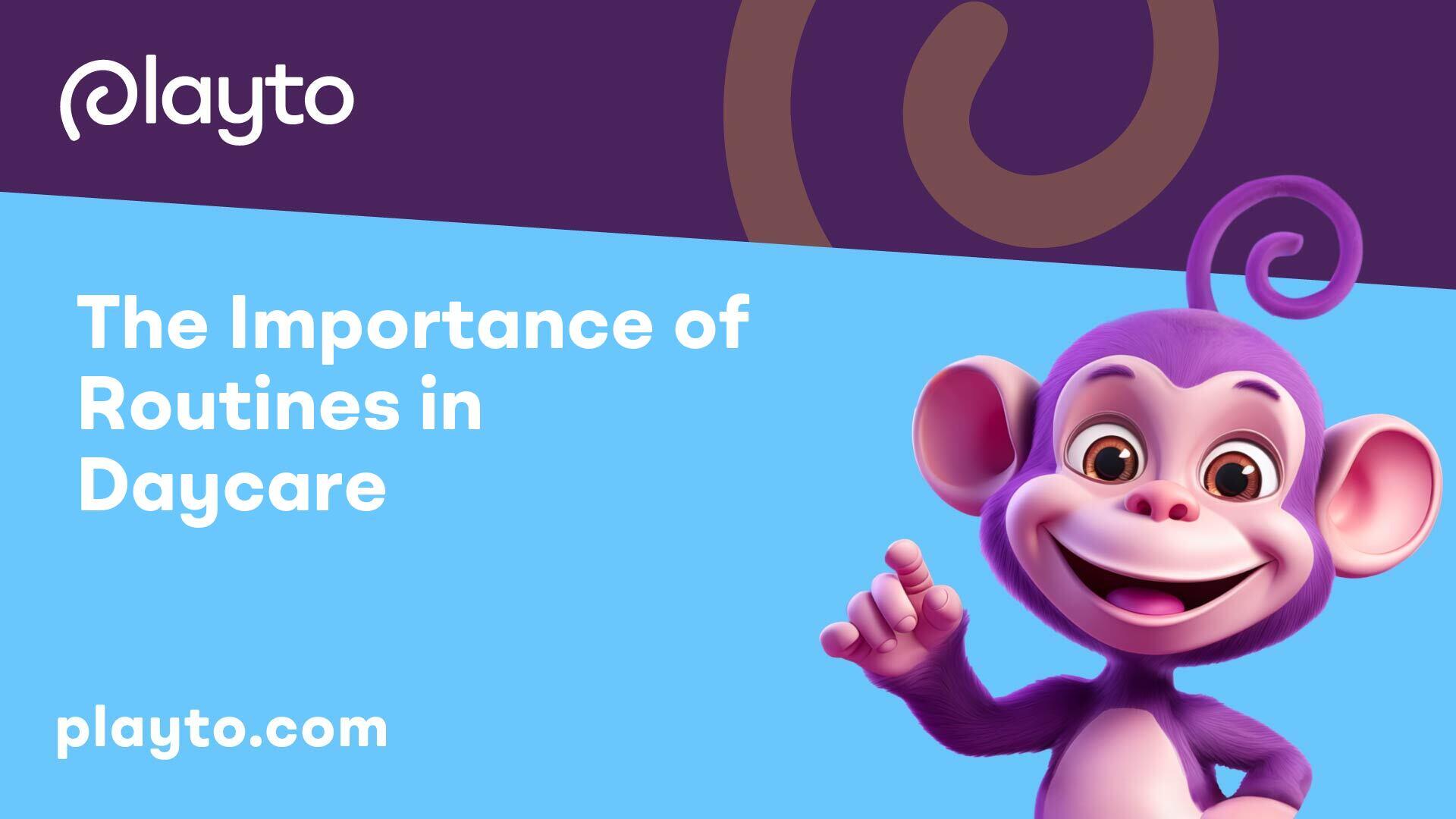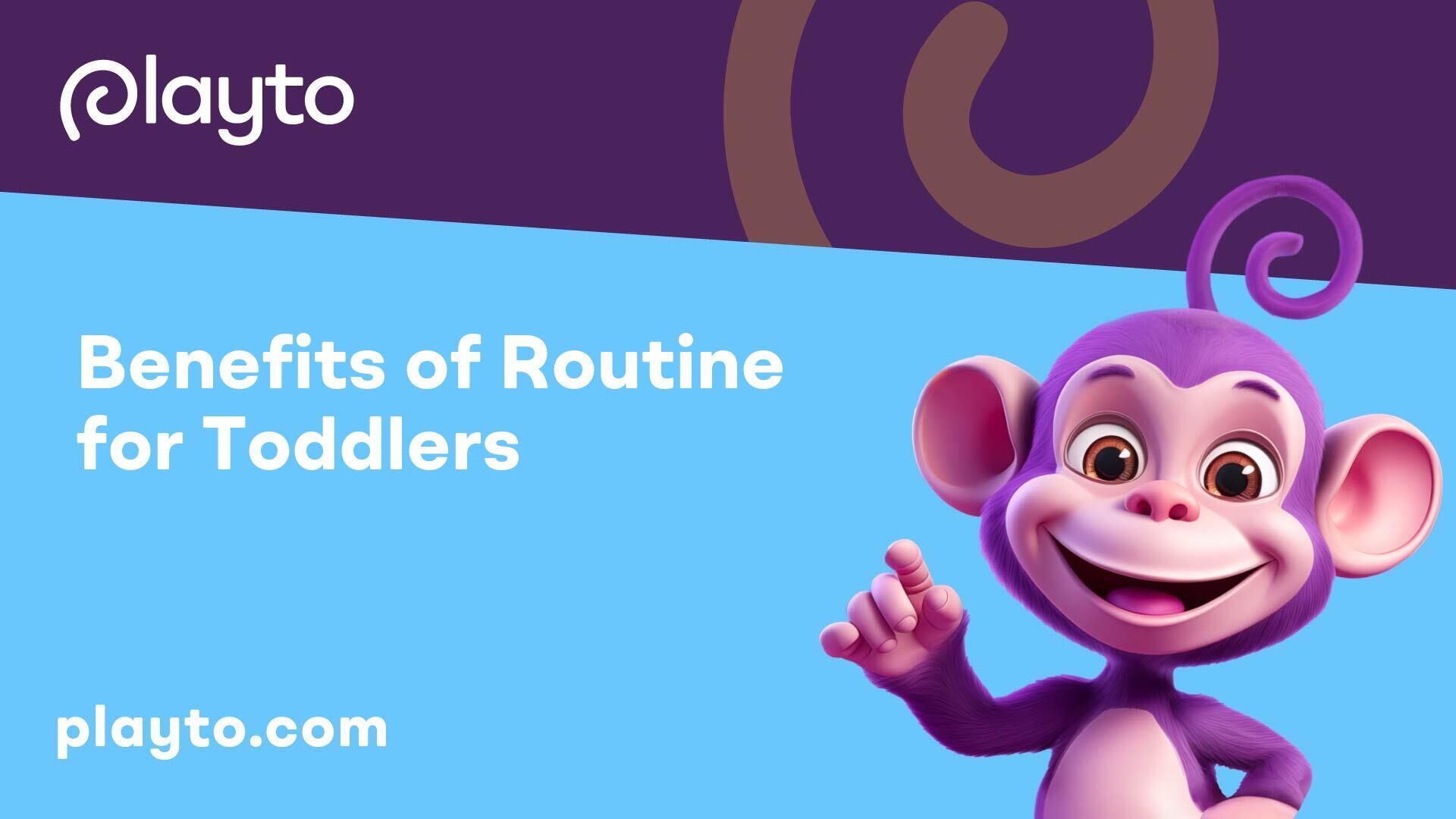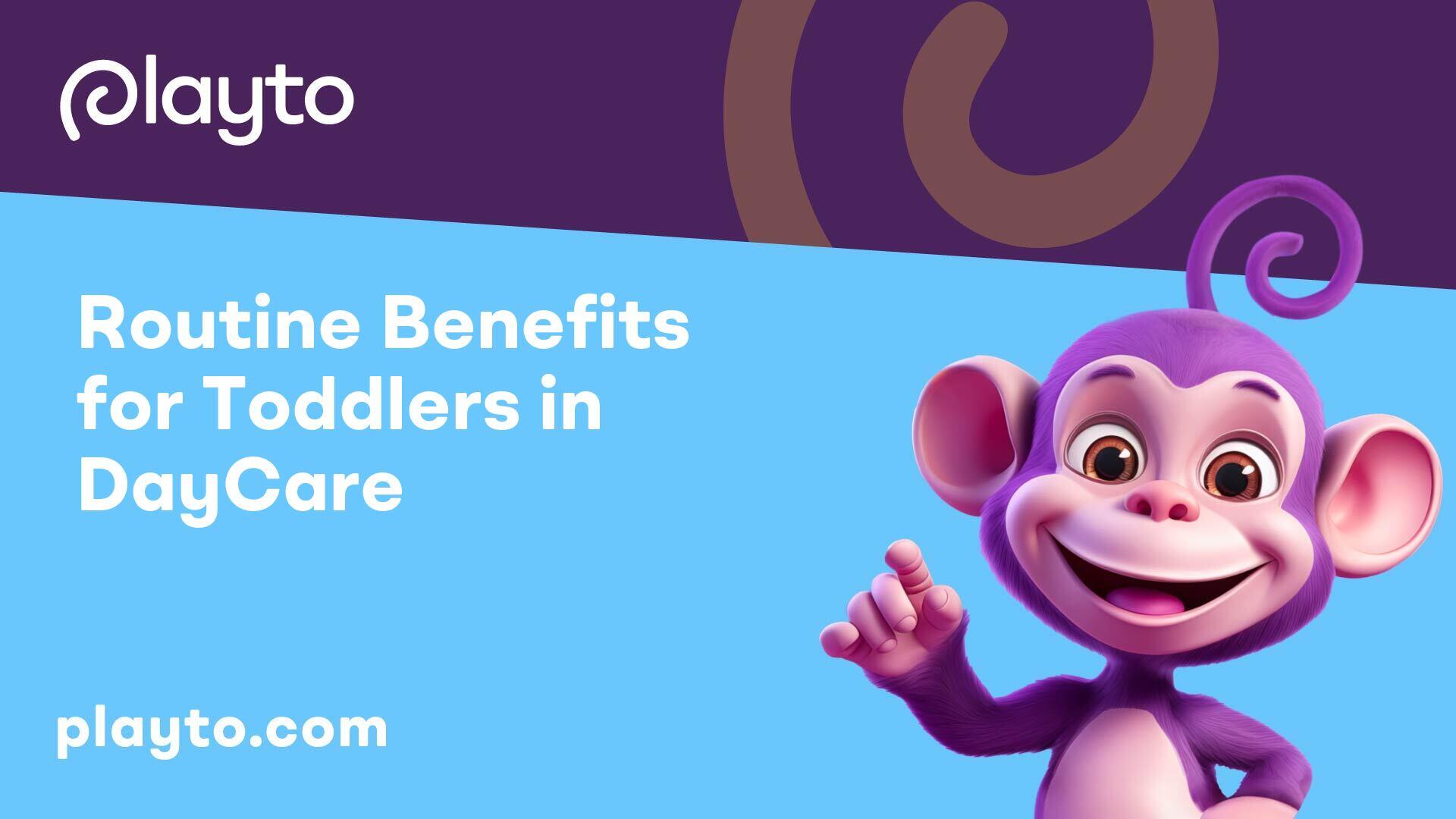
The Importance of Routines in Daycare
Establishing routines in daycare plays a crucial role in building relationships and fostering confidence in toddlers. When infants and toddlers are immersed in familiar activities and routines, they develop relationships with the people they interact with and gain a sense of belonging and self-confidence. As toddlers grow, routines help them follow schedules, exhibit budding independence, and adapt to changes more smoothly.
Building Relationships and Confidence
Engaging and predictable environments, along with positive adult-child interactions, are essential for promoting social and emotional development in toddlers. By incorporating clear and simple schedules and routines, daycare settings can create a nurturing atmosphere that supports children's emotional well-being and interpersonal connections.
Stable routines allow toddlers to anticipate upcoming events, giving them a sense of control and confidence. This predictability helps toddlers feel secure, enabling them to engage in play, exploration, and learning activities with greater freedom and comfort. Within these routines, providing toddlers with choices, such as selecting a toy or book, empowers them and reduces potential conflicts, fostering a sense of predictability and positive interaction.
Promoting Social and Emotional Development
Routines in daycare not only aid in relationship-building but also play a vital role in promoting social and emotional development among toddlers. By following a consistent routine, toddlers learn self-control and gain a deeper understanding of the world around them. Knowing what to expect next provides a sense of security and emotional stability, allowing toddlers to navigate their environment with confidence.
Additionally, routines help guide toddlers towards positive behaviors and safety practices. By establishing specific rituals within daily activities, such as washing hands before meals or lining up before playtime, daycare settings instill important habits that promote health, safety, and responsible behavior. These routines not only enhance the overall well-being of toddlers but also create a structured and supportive environment conducive to social interaction and emotional development.
In daycare settings, a thoughtful and consistent approach to routines not only benefits toddlers individually but also contributes to the positive social dynamics and emotional growth of the group as a whole. By understanding the significance of routines in daycare, caregivers and educators can create a nurturing and stimulating environment that supports toddlers' social, emotional, and cognitive development.

Types of Preschool Programs
Exploring preschool programs is essential for parents seeking the ideal early learning environment for their toddlers. Each program offers a unique approach to education and development. Here are some popular types of preschool programs:
Montessori Approach
The Montessori approach was established by Dr. Maria Montessori, focusing on individualized and self-paced learning in multi-age classrooms. Key study areas include practical life skills, sensorial exploration, mathematics, language development, and cultural studies. This approach emphasizes independence and hands-on learning, allowing children to explore and discover at their own pace.
HighScope Program
The HighScope program places a strong emphasis on active learning and engagement. Through interactive and playful activities, children develop essential school readiness skills and foster cognitive, emotional, and social growth. Teachers use key developmental indicators to tailor projects and activities that meet the needs of children at different stages of development.
Waldorf Preschool Program
The Waldorf preschool program, inspired by Rudolf Steiner, combines structured learning with creative exploration. This approach focuses on intellectual inquiry, practical skills development, and artistic expression. Classrooms are often mixed-age, and the curriculum emphasizes outdoor activities, creativity, and hands-on experiences over traditional academic subjects.
Reggio Emilia Approach
The Reggio Emilia approach originated in Italy and promotes project-based learning that stems from children's interests. This child-centered approach encourages collaboration, creativity, and exploration. Children's natural curiosity drives the curriculum, allowing for deeper engagement and a more personalized learning experience.
Ascend Program
The Ascend program focuses on nurturing toddlers' capabilities across various domains, including creativity, social-emotional development, physical skills, and cognitive abilities. Through a play-based and skills-focused curriculum, children engage in activities that promote critical thinking, problem-solving, and personalized interactions. The Ascend program aims to develop essential skills in a supportive and engaging learning environment.
By understanding the distinct characteristics of each preschool program, parents can make informed decisions about which approach aligns best with their child's learning style and developmental needs. Whether it's the structured learning of Montessori, the interactive play of HighScope, the creative focus of Waldorf, the child-driven exploration of Reggio Emilia, or the comprehensive development of the Ascend program, each offers unique benefits for toddlers in their early learning journey.

Benefits of Routine for Toddlers
Establishing routines in daycare settings plays a pivotal role in the development and well-being of toddlers. Routines provide a sense of predictability and stability, allowing toddlers to thrive in a structured environment. Let's delve into the specific benefits that routines offer toddlers in daycare: learning self-control, enhancing safety and behavior, and developing social skills.
Learning Self-Control
Routines play a crucial role in helping toddlers learn self-control. By following consistent daily schedules and activities, toddlers begin to understand the concept of predictability and the sequence of events. This sense of order and predictability nurtures their ability to regulate emotions, manage impulses, and adhere to guidelines. Through routines, toddlers develop a sense of mastery and autonomy, laying the foundation for self-control skills that will benefit them as they grow and explore the world around them.
Enhancing Safety and Behavior
Structured routines in daycare settings guide toddlers' behavior and promote safety. Consistent routines, such as washing hands before meals or lining up before outdoor play, establish clear expectations and boundaries for toddlers. These routines instill essential safety practices and promote positive behavior patterns. By following established routines, toddlers internalize the importance of safety measures and responsible actions, contributing to a secure and harmonious daycare environment.
Developing Social Skills
Routines in daycare are instrumental in fostering the development of toddlers' social skills. Daily interactions within routines, such as greetings, sharing activities, and engaging in group play, provide valuable opportunities for toddlers to practice social interactions. These routines teach toddlers important social norms, such as taking turns, listening to others, and cooperating with peers. Through consistent routines, toddlers learn to navigate social interactions effectively, setting the stage for positive relationship-building and social competence.
By incorporating routines that prioritize learning self-control, enhancing safety and behavior, and developing social skills, daycare programs create a supportive and enriching environment for toddlers to thrive. Consistent routines not only contribute to toddlers' overall development but also lay a solid foundation for their future growth and success. Toddler daycare parent collaboration is essential in reinforcing these routines at home, providing continuity and support for toddlers' learning and development.

Routines and Cognitive Development
In toddler daycare settings, routines play a vital role in nurturing cognitive development during the formative early years. Understanding how cognitive growth is fostered through daily routines, the impact of linguistic input, and how routines advance learning outcomes is crucial for creating a stimulating environment for young learners.
Cognitive Growth in Early Years
Studies of early cognitive development have revealed that infants and toddlers actively engage in learning and form implicit theories right from birth. This suggests that even at a young age, children demonstrate insightful and competent thinking abilities. By providing a structured routine in daycare, children are exposed to various stimuli and experiences that contribute to their cognitive growth and understanding of the world around them [3].
Impact of Linguistic Input
Linguistic input by adults plays a significant role in shaping children's cognitive development. Simple labels and language cues provided by caregivers can greatly impact children's ability to categorize information and foster conceptual growth. Through interactions that include engaging language, children are exposed to new ideas, vocabulary, and ways of expressing themselves, which are essential for cognitive advancement.
Advancing Learning Outcomes
Educators who are cognizant of children's cognitive growth during preschool and kindergarten years have the opportunity to capitalize on their existing knowledge and delve into more advanced subject matters. By understanding the cognitive abilities of young learners, educators can tailor learning experiences that challenge children in a developmentally appropriate manner, leading to enhanced learning outcomes and a deeper understanding of various concepts and skills [3].
By incorporating routines that support cognitive development, such as engaging activities, language-rich environments, and opportunities for exploration and discovery, daycare providers can create an enriching and stimulating setting that fosters intellectual curiosity and cognitive growth in toddlers. This not only prepares children for future academic success but also instills a lifelong love for learning and exploration.

Supporting Physical Development
In daycare settings, supporting physical development in infants and toddlers is paramount for their overall growth and well-being. Caregivers play a crucial role in fostering physical growth through routines that are tailored to meet the individual needs of each child.
Infants and Toddlers' Physical Growth
Engaging infants and toddlers in appropriate experiences and activities is essential for supporting their physical development. By incorporating structured routines that include opportunities for movement, exploration, and play, caregivers can help infants and toddlers build foundational motor skills and coordination.
Observing each child's unique physical capabilities and limitations is key to providing personalized care. For example, caregivers may offer lighter or thicker objects during diapering routines based on a child's strengths and developmental stage. By individualizing care and adapting routines to accommodate the specific needs of each child, caregivers can enhance the overall physical development of infants and toddlers in daycare settings.
Individualized Care in Childcare Settings
Responsive and individualized care is fundamental to supporting physical development in infants and toddlers. Caregivers must collaborate with families to align routines with the child’s strengths, needs, and learning interests while respecting the family's values and beliefs. This partnership ensures a holistic approach to fostering physical growth in daycare environments [4].
Maintaining a predictable and consistent schedule is vital for infants and toddlers to feel secure and confident in their surroundings. By following structured routines that provide a sense of stability and security, caregivers can help children understand what to expect, leading to increased confidence and a positive sense of self [5].
Incorporating individualized care into daily routines allows caregivers to cater to the unique needs of each child, promoting physical development while nurturing a sense of trust and security. By creating a supportive and responsive environment that values each child's individuality, daycare providers can lay the foundation for healthy physical growth and overall well-being in infants and toddlers.
Mental Health and Routines
Establishing and maintaining routines in daycare settings play a crucial role in supporting the mental health and well-being of toddlers. This section explores the importance of predictable environments, the benefits of rituals, and the adaptability of routines during times of crisis.
Importance of Predictable Environments
Routines in daycare create predictability for toddlers, providing a sense of security and emotional stability. Predictable environments help children understand what to expect next, fostering a sense of control and confidence. By following consistent routines, children can feel more at ease, enabling them to engage in play, exploration, and learning with greater comfort and freedom.
Benefits of Rituals
Rituals within routines offer additional layers of comfort and reassurance to toddlers. These repeated actions or activities provide a sense of continuity and familiarity, enhancing feelings of safety and emotional well-being [2]. For instance, incorporating choices within routines, like allowing toddlers to pick a bedtime story, can empower them and reduce potential power struggles. By incorporating rituals, caregivers can help children anticipate and navigate daily transitions more smoothly.
Adapting Routines During Crisis
During challenging or unexpected situations, such as transitions, emergencies, or disruptions, the adaptability of routines becomes essential. Adapting routines during crises helps toddlers cope with change and uncertainty while maintaining a sense of stability and security. Caregivers can modify routines to accommodate new circumstances, provide additional support and reassurance, and offer a familiar anchor amidst uncertainty.
By recognizing the significance of predictable environments, the benefits of rituals, and the flexibility of routines during crisis situations, daycare centers can create nurturing and supportive environments for toddlers. These practices not only promote mental health and emotional well-being but also contribute to positive developmental outcomes for young children in daycare settings.
Family Engagement and Early Learning Programs
Quality early education programs play a vital role in the development of toddlers in daycare. These programs encompass various elements that contribute to the overall well-being and growth of young children.
Effects of Quality Early Education Programs
According to the Center for American Progress, quality early childhood programs involve comprehensive family engagement activities, multilevel continuous quality improvement systems, and sustainable funding mechanisms. By incorporating these components, early education programs create a supportive and enriching environment for toddlers to thrive. Family engagement, in particular, fosters collaboration between toddler daycare centers and parents, enhancing the overall learning experience for the child.
Key Factors in Program Quality
The success of an early education program is often measured by the quality of services it provides. Key factors that contribute to program quality include a well-structured curriculum tailored to meet the developmental needs of toddlers, a nurturing and stimulating environment that encourages exploration and creativity, and a diverse range of learning experiences that promote holistic development.
Moreover, evaluation plays a crucial role in maintaining program quality. Regular assessments help evaluate toddler daycare programs to ensure they are meeting the established standards and delivering positive outcomes for the children in their care. By continuously monitoring and improving program quality, daycare centers can create a conducive learning environment that supports the growth and development of toddlers.
Importance of Stable Teacher Workforce
A stable and professional teacher workforce is essential for the success of early childhood programs. As noted by the Center for American Progress, maintaining a stable teacher workforce is crucial in achieving and sustaining high-quality daycare programs. Experienced and dedicated teachers play a significant role in nurturing the social, emotional, and cognitive development of toddlers. Their expertise and commitment contribute to creating a nurturing and supportive learning environment that fosters growth and learning.
By emphasizing the importance of a stable teacher workforce, early education programs can attract, retain, and support talented educators who are passionate about working with young children. Investing in professional development opportunities, competitive compensation, and a positive work environment can help to build a strong and resilient teacher workforce that positively impacts the lives of toddlers in daycare.
Ensuring High-Quality Early Childhood Programs
When it comes to providing a nurturing and enriching environment for toddlers in daycare, ensuring the quality of early childhood programs is paramount. Various elements contribute to the effectiveness of these programs, ranging from teacher training and compensation to family engagement and funding mechanisms, as well as comprehensive quality improvement systems.
Teacher Training and Compensation
A cornerstone of high-quality early childhood programs is the professional development and support provided to educators. Teachers in these programs should possess formal education and training in early childhood education, equipping them with the knowledge and skills necessary to cater to the unique needs of young children. To attract and retain qualified teachers, competitive compensation and benefits are essential.
Moreover, appropriate teacher-child ratios and a diverse workforce that reflects the child population contribute to a more inclusive and enriching educational experience. Effective leadership within daycare programs is also crucial, with leaders exhibiting competencies in instructional support, business management, organizational management, and relationship building.
Family Engagement and Funding Mechanisms
Another vital component of high-quality early childhood programs is comprehensive family engagement. Engaging families in their children's learning journey fosters a strong partnership between educators and parents, enhancing the overall development and well-being of toddlers in daycare. This involvement not only supports children's academic progress but also strengthens the connection between home and daycare.
Sustainable funding mechanisms are critical to the operation of quality daycare programs. Adequate funding ensures that programs have the necessary resources to maintain high standards of care, implement innovative teaching practices, and provide a safe and stimulating environment for toddlers. Access to sufficient funding enables daycare centers to offer a range of enriching activities and educational opportunities, enhancing the overall quality of the early childhood experience.
Comprehensive Quality Improvement Systems
In order to continuously enhance the quality of early childhood programs, the implementation of comprehensive quality improvement systems is essential. These systems involve continuous evaluation and improvement processes to ensure that programs are meeting the highest standards of care and education. By regularly assessing program quality and implementing targeted improvements, daycare centers can adapt to the evolving needs of children and families, fostering a dynamic and responsive learning environment.
By prioritizing teacher training and compensation, promoting family engagement, establishing sustainable funding mechanisms, and implementing quality improvement systems, daycare centers can uphold the standards of excellence in early childhood education. These foundational elements contribute to the overall success and impact of high-quality early childhood programs, benefiting children, families, and communities alike.
References
[1]: https://eclkc.ohs.acf.hhs.gov/quienes-somos/articulo/importance-schedules-routines
[2]: https://www.zerotothree.org/resource/creating-routines-for-love-and-learning/
[3]: https://www.ncbi.nlm.nih.gov/books/NBK310550/
[4]: https://www.virtuallabschool.org/infant-toddler/physical-development/lesson-4
[5]: https://www.virtuallabschool.org/infant-toddler/learning-environments/lesson-5
